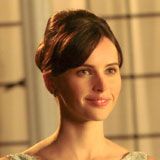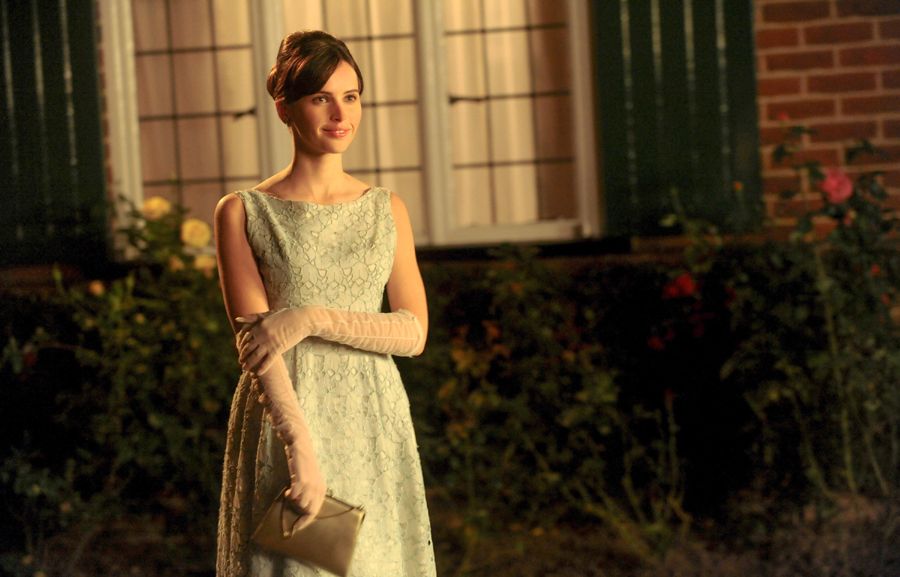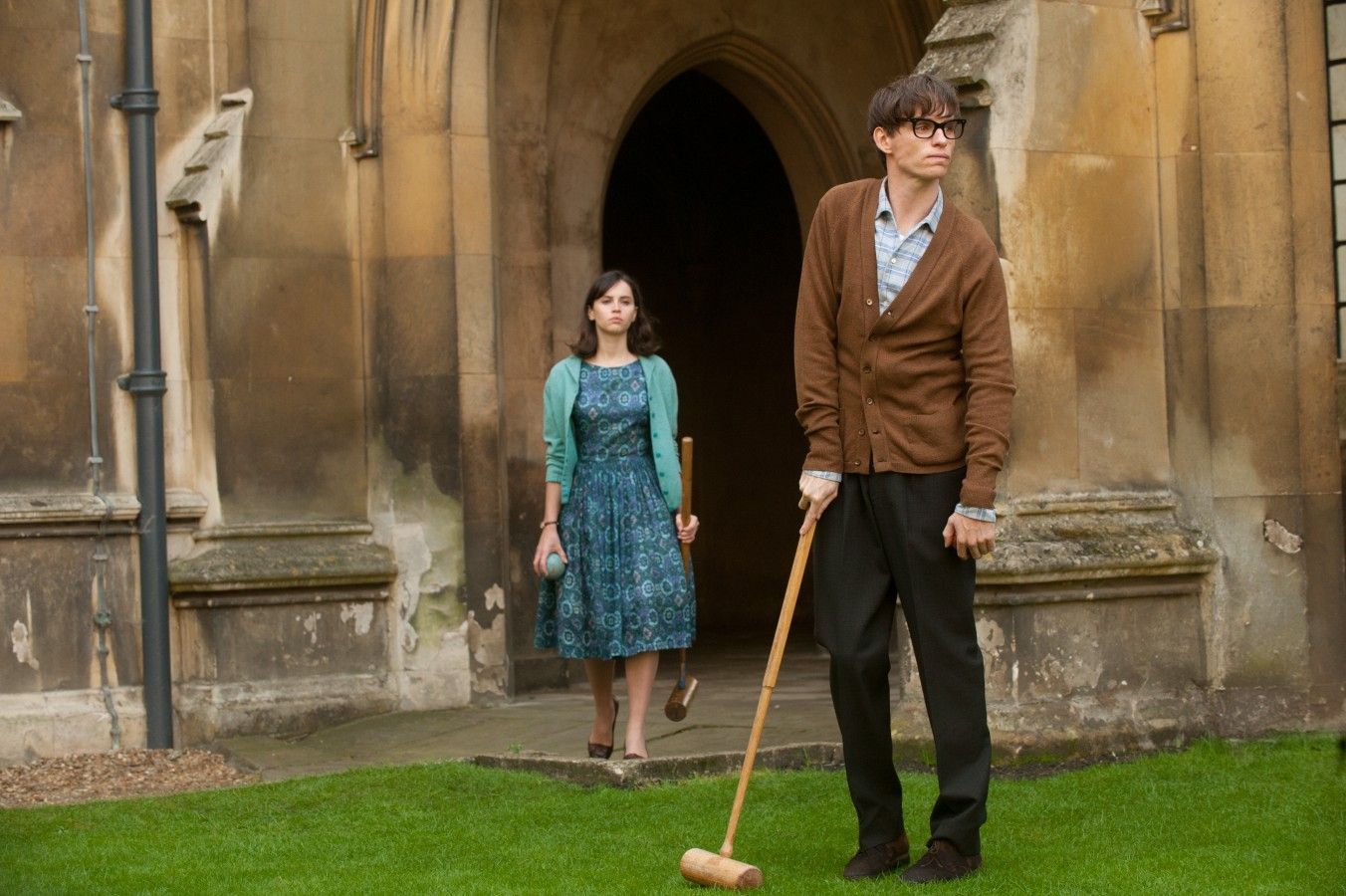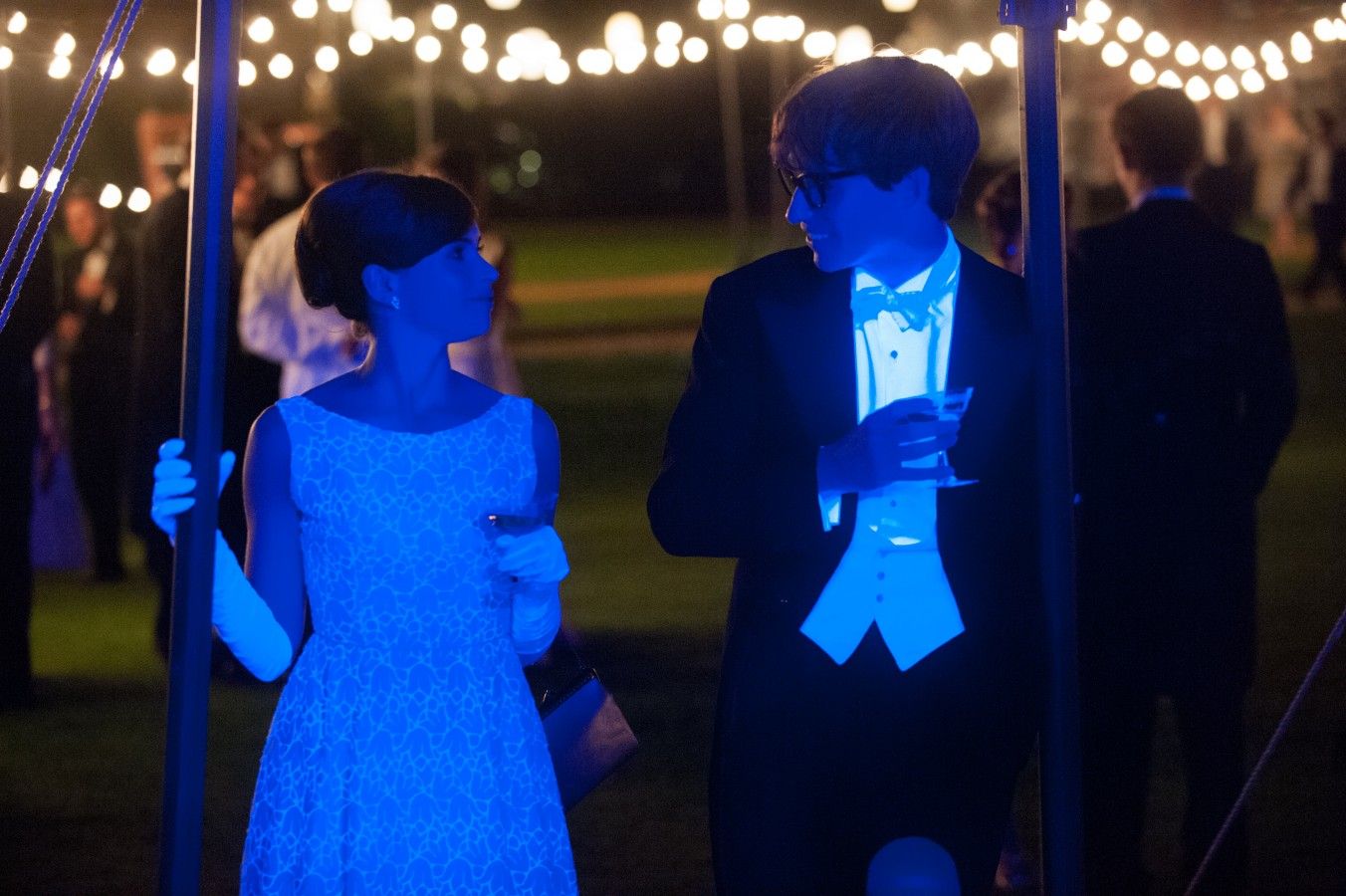After only a few short years working in Hollywood, Felicity Jones is suddenly poised to conquer it.
Following her U.S. debut in Like Crazy, the 31-year-old British actress was ranked high on many critics' lists of the best performances of 2011, bolstered two years later with a turn as Charles Dickens' mistress/muse Nelly Turnan in The Invisible Woman. Having caught the attention of the Hollywood establishment, Jones landed a small but high-profile role in The Amazing Spider-Man 2 as Felicia Hardy, better known to comic book fans as luck-warping burglar Black Cat.
Now, with The Theory of Everything, Jones is being praised for her role as Jane Wilde Hawking, wife of renowned astrophysicist Stephen Hawking (played by Eddie Redmayne) as he embarked on his most ambitious scientific work while battling an increasingly debilitating motor neuron disease. Spinoff Online was on hand as Jones chatted with reporters about the film, and touched upon her utter lack of knowledge about her future in the Amazing Spider-Man franchise.
On the sensations she felt when this role came her way:
Felicity Jones: Fear and fight: fear that you might not get the part. But yeah, reading this, what I loved about it was that it wasn’t a straightforward biopic. I love reading scripts but I hate reading them on email or on my computer. I love just having them on paper, so I sit down – and you know when you really like something when you don’t keep getting up to go and have coffee or check your phone or things like that? I just sat down and read it in one go.
I just loved that as the story unfolded it got more and more complex and interesting, and that there was this phenomenal female character who had this inner strength and determination and willfulness, but also there was a vulnerability to her. There was an enormous amount of love and care she had at the same time. And that it was exploring her sexual identity, as well – both hers and Stephen’s. The film is a lot about two very passionate people who aren’t saints, who are both of them willful and very determined, but trying to have a relationship within those circumstances.
On meeting Jane Hawking while working on the film:
I was nervous meeting Jane, because she is formidable. Just reading her book and the detail with which she writes it – she has an academic mind. It’s precise: dates, times, everything. So I felt from the book I had a strong sense of her interior life, but what I found in meeting Jane is there’s something a bit like the Army general about her. And that was really useful in playing the scene when Jane is talking to Stephen’s father, and she says, “I may not look like a terribly strong person.” And I kept coming back to that scene – it was one of those scenes, I didn’t feel like I got it instantly. It took a bit of time, and my thought on it was, “This is a woman’s call to arms. It’s like she’s going to battle. And the battle is keeping Stephen alive.”
And that’s what I found when I met Jane is, she manages to command a room, but in this very sort of polite way, with a very light touch. And it was taking those elements. It was her voice, which was very particular, and in getting that right, working with a dialect coach. And then the way she moves – she loves dancing – and the way she holds herself. And then working with performance coaches to get that right. I guess it’s a full-on attack on a character and just knowing everything that you can about them.
On her encounter with Stephen Hawking:
Jane was already very much on board, and it was important to her that she had Stephen’s blessing to do the film. And so we spent time with Stephen, who is phenomenal – that’s what I loved about these two people is he is also very commanding and has an incredible wit and a presence. And I love that almost there’s this antagonism between them. They’re both very similar personalities. And that’s in many ways what kept their relationship going, because they were always challenging each other.
On her working friendship with Eddie Redmayne:
We’ve had very similar careers, actually, and we’ve known each other since our early 20s and gone to auditions together and been turned down for a lot of stuff together. And done independent films, and then both doing theater. And actually, that was such a key element of doing The Theory of Everything, was bringing the elements we’d learned in the theater into preparing for The Theory of Everything. And we were just lucky. We just had really similar ways of working.
We both like doing lots of takes. I think we both can be quite self-conscious, so we feel like rehearsal is really good, because you can make a fool of yourself and make mistakes before you get to doing it on a camera. And we both like to take ownership over the roles and James [Marsh] really let us do that, you know. He made us so much a part of the process and would show us rushes, so early on you could see what kind of film you were in. I could see how Benoît Delhomme was shooting it, and obviously how that affects your performance. Just having that information is really useful, and Eddie, I know, also likes to work in that way.
On what Stephen Hawking meant to her before she became involved with the film:
He’s such a universally known figure, and he’s a famous celebrity so you feel like you know him, but you don’t actually know him at all. And then what I found in meeting him the whole way along is that Stephen is someone who has no bullshit. And you feel that when you meet him. You’re kind of nervously trying to talk and fill silences and make him like you, and he’s someone who just takes hold of the situation and you feel like he sees through things very quickly. And I admire that in him.
He’s a physicist, but he’s also a philosopher, isn’t he? He said recently, somebody asked, “What is the best way to get through life?” – I'm slightly paraphrasing that question – and the thing he said was, “Be curious.” And that’s what he has never given up on. He is someone who just keeps pushing and trying and analyzing and you can’t help but take that away with you. Curiosity, that’s what you have to maintain.
On the Spider-Man film franchise possibly spinning off female characters like Black Cat into their own films:
I think it’s a fantastic idea. It’d be great to have more female superheroes.
On not knowing what or when the Spider-Man plans will be, but still trying to move her career forward:
You get used to it with filmmaking. You don’t always know when projects are going to happen and you just get used to, as an actor, not being able to schedule huge amounts in advance. You can’t even say, can I go and book your holiday, because you never know what you’ll be doing in three months’ time. I’ve kind of gotten used to it.
The Theory of Everything is playing now in theaters.




